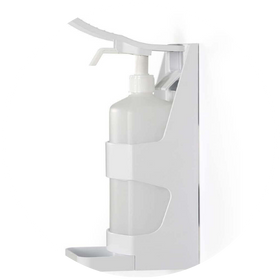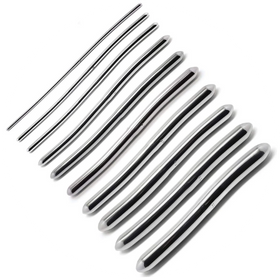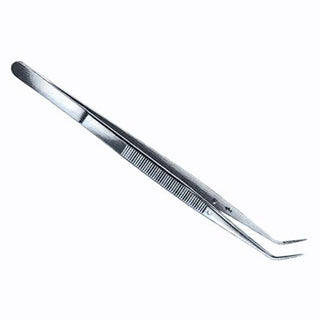From bustling research institutions to educational labs across Australia, laboratory plasticware plays a vital yet often overlooked role in scientific operations. While high-tech instruments like spectrophotometers and incubators frequently take the spotlight, plastic components such as beakers, cuvettes, cryotubes, and more support the accuracy, safety, and efficiency of daily lab work.
Why Laboratory Plastic Matters
Laboratory plastic includes a wide variety of items such as cryotubes, centrifuge tubes, cuvettes, funnels, trays, adhesive films, bottles and storage containers. These products are favoured for being cost-effective, lightweight and often disposable. Their resistance to breakage and compatibility with a broad range of substances make them a popular choice in clinical, analytical and educational environments.
For instance:
-
Cryotubes store biological samples at ultra-low temperatures without leakage.
-
Funnels and measuring cylinders ensure precise transfers of liquids.
-
Centrifuge tubes endure high G-forces without compromising structural integrity.
Plastic labware supports every part of the scientific process. Whether in microbiology, genetics or analytical chemistry, it ensures workflows remain efficient and contamination-free.
What Are the Different Laboratory Instruments and How Does Plastic Fit In?
When people think about laboratory instruments, equipment like microscopes, spectrometers or incubators often come to mind. However, these devices rely heavily on plastic consumables for proper function.
In a typical diagnostic or research lab:
-
Micropipettes depend on disposable pipette tips made of plastic.
-
UV-Vis spectrophotometers require plastic cuvettes to hold samples.
-
Centrifugation and storage procedures rely on durable plastic tubes and cryotube boxes.
Plasticware may not be categorised as an instrument itself, but it is integral to the daily operation of nearly every laboratory instrument. It enables safe sample handling and improves experimental consistency.
For a more detailed look at instruments and standards used in Australian labs, you can visit the National Measurement Institute, which outlines key practices followed by scientific institutions across the country.
Where Can You Purchase Reliable Laboratory Equipment?
Australian professionals seeking quality laboratory plasticware have access to trusted, local suppliers. Medilab Marketplace offers a carefully selected range of lab plastics for research, education and diagnostics.
Medilab works exclusively with verified vendors who meet Australia’s strict health and safety standards. From funnels and trays to cryotube storage solutions, our platform makes sourcing lab-ready plastics simple and secure.
Another great resource is LabGear Australia, which provides lab equipment and consumables for general and specialist applications.
When choosing a supplier, always ensure the products are:
-
Manufactured under ISO-certified processes
-
Tested for chemical and physical compatibility
-
Accompanied by clear usage and disposal guidelines
Reliable suppliers are essential for ensuring experimental consistency, especially when working in regulated or accredited laboratory environments.
What Happens to Old and Defunct Lab Equipment and How Should Plastic Waste Be Handled?
As laboratories across Australia strive for more sustainable practices, waste management has become a growing concern. While large instruments like spectrophotometers and thermal cyclers can be recycled or refurbished, laboratory plasticware presents unique disposal challenges.
Many plastic lab items are single-use for contamination control. However, when items like trays, bottles or cryotube boxes are clean and uncontaminated, they may be recyclable depending on local council or institutional programs.
Programs such as ChemClear offer responsible disposal options for chemical-related waste, supporting safer and greener lab operations.
To reduce waste, laboratories should consider:
-
Using reusable plasticware when suitable
-
Clearly segregating hazardous from non-hazardous waste
-
Training staff in sustainable disposal methods
Institutional policies can also help enforce accountability and reduce overall plastic consumption.
How to Properly Maintain and Calibrate Plastic Lab Equipment
While lab machines require regular calibration, maintenance of laboratory plasticware is just as critical for ensuring reproducibility and user safety.
Here are the key steps to follow:
-
Check Material Compatibility
Always confirm whether the plastic can withstand heat, chemicals or cold storage. For example, not all plasticware is safe to autoclave or freeze. -
Use Gentle Cleaning Methods
Opt for pH-neutral detergents and avoid abrasive tools. This preserves the clarity and surface of items like cuvettes and bottles. -
Inspect for Signs of Wear
Look for cracks, discolouration or brittleness. Damaged plasticware can compromise experimental results or pose a safety hazard. -
Store in a Suitable Environment
Avoid exposure to sunlight or extreme temperatures, which can degrade plastic integrity over time. -
Label Correctly
Use appropriate adhesive films and permanent markers to ensure accurate tracking of reagents and samples.
Integrating plasticware into your lab’s asset or maintenance logbook can help standardise quality checks across teams and reduce the risk of errors.
Why Medilab Is the Preferred Destination for Laboratory Plastics
At Medilab, we offer a full spectrum of laboratory plasticware designed to meet the needs of professionals in healthcare, diagnostics, education and research. Whether you are looking for centrifuge tubes, , or cryotube storage solutions, our collection combines quality, affordability and compliance.
We provide:
-
Verified products from approved suppliers
-
Easy online ordering with reliable delivery across Australia
-
A supportive customer service team for tailored advice
Our mission is to help laboratories operate more efficiently by supplying dependable tools that support accurate and safe experimentation.
Browse our complete Laboratory Plastic collection for centrifuge tubes, measuring funnels, cryotubes and more.
References
- National Measurement Institute. (n.d.). Measurement standards and services in Australia. Retrieved from https://www.industry.gov.au/national-measurement-institute
- ChemClear. (n.d.). Disposing of unwanted chemicals safely. Retrieved from https://www.chemclear.org.au
- LabGear Australia. (n.d.). Laboratory equipment and consumables. Retrieved from https://www.labgearaustralia.com.au





